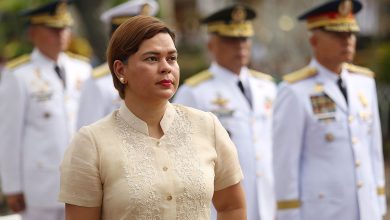Oil deregulation law revision unlikely

THE PHILIPPINE Congress is unlikely to pass a proposed measure that would give the government powers to intervene in the event of a spike in oil prices, according to the Energy department.
This as fuel retailers announced gasoline prices will go up by P3 per liter on Tuesday, while diesel and kerosene prices will increase by P4.10 and P3.50 per liter, respectively.
In a televised news briefing on Monday, Energy Undersecretary Gerardo Erguiza, Jr. said amending the country’s oil deregulation law before the end of President Rodrigo R. Duterte’s six-year term may be challenging because lawmakers are now focused on the election campaign.
He said the law is still under review in both chambers of Congress, with only months left before Mr. Duterte leaves Malacañang.
“Whether or not the (proposed) amendment in this Congress would be finished, the House and Senate would still have to convene,” he said. “Based on our estimates, it will be difficult for any amendments to be passed because the election season has changed their priorities.”
“After the polls, canvassing, lawmakers have to go around of course and maybe thank their constituencies and maybe even take lighter loads,” he added.
In early March, Malacañang asked Congress to review the country’s oil deregulation law after successive increases in global oil prices.
The House Committee on Energy in March approved amendments to the Republic Act No. 8479, also known as the Downstream Oil Industry Deregulation Act of 1998. If passed into law, the measure would prevent oil companies from raising prices of old stock and require them to increase their minimum inventory to prevent fluctuations in local fuel prices. It would also require oil players to unbundle domestic prices.
On March 23, Senate President Vicente C. Sotto III said lawmakers still have time to change the 24-year-old law even if Mr. Duterte decides not to call for a special session.
Congress is currently on a break for the elections until May 22. Lawmakers resume session on May 23 until the 18th Congress adjourns sine die on June 4.
“If the Duterte administration is really serious in pushing for the amendments, it can certify the amendatory bill as an urgent measure. The real question is: Is there a political will for the Duterte administration to do it?” House Minority Deputy Leader and Bayan Muna Rep. Carlos Isagani T. Zarate said in a Viber message.
The oil deregulation law had removed government control on the pricing, exportation, and importation of petroleum products, allowing market forces to dictate oil prices.
Progressive groups have been urging the government to review the law, saying it has allowed oil price increases to go unchecked.
Data from the Department of Energy as of April 19 showed year-to-date adjustments stand at a net increase of P15.45 per liter for gasoline, P27.35 per liter for diesel, and P21.55 per liter for kerosene.
Mr. Erguiza said oil prices in the global markets remain volatile, mainly due to the Russia-Ukraine war and the European Union’s (EU) possible sanctions against Russian oil imports.
Russia is Europe’s biggest oil supplier, providing nearly a fourth of the EU’s oil imports in 2020.
Ukraine has been urging the EU to ban Russian oil and gas as the war continues.
Reuters reported on Monday that Brent crude futures fell by 4.5% to a two-week low of $101.78 barrel, as investors worry that coronavirus lockdowns in China will dampen global demand. — Kyle Aristophere T. Atienza




